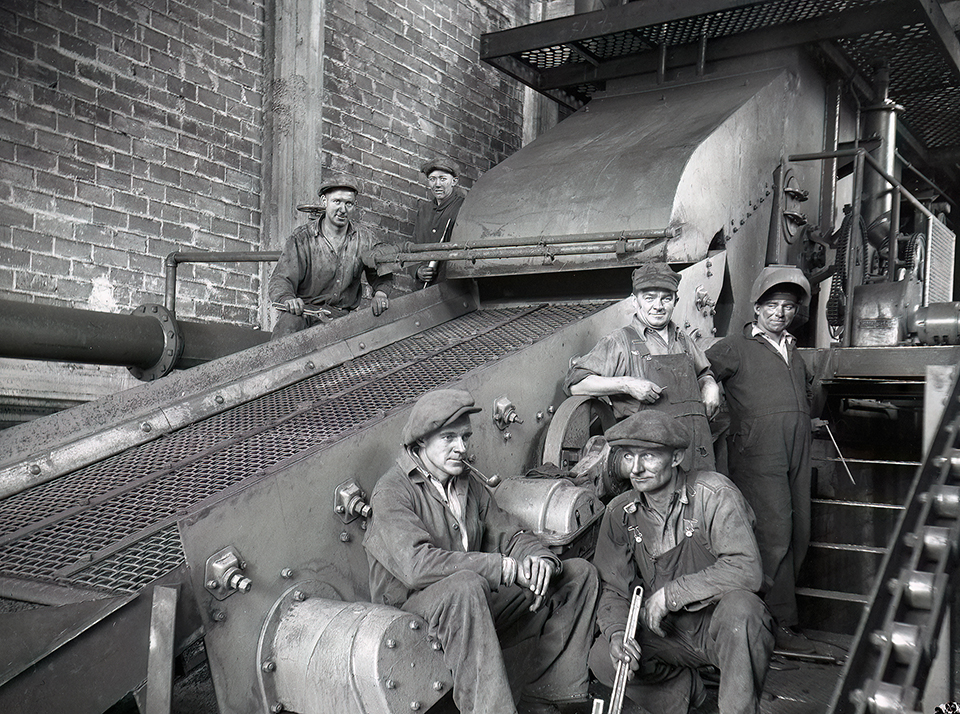
I enjoy looking at old historical photographs, especially ones of the Crowsnest Pass. I am also interested in repeat photography, where photographs of the same subject are taken from the same location, at different times. Sometimes these photos can be taken decades apart. This type of “then and now” photography is often used by environmental scientists and researchers to track and study landscape change over time.
In 2015, I came across a website displaying numerous “then and now” photographs of the 1906 San Francisco earthquake by photographer Shawn Clover. What set Shawn’s Fade to 1906 photos apart from the typical repeat photograph was the way he blended the “before” and “after” images together to create stunning composite photographs showing historical scenes from the 1906 earthquake with his own present-day captures of the same locations. After viewing Shawn’s photographs, I was inspired to try this for myself.
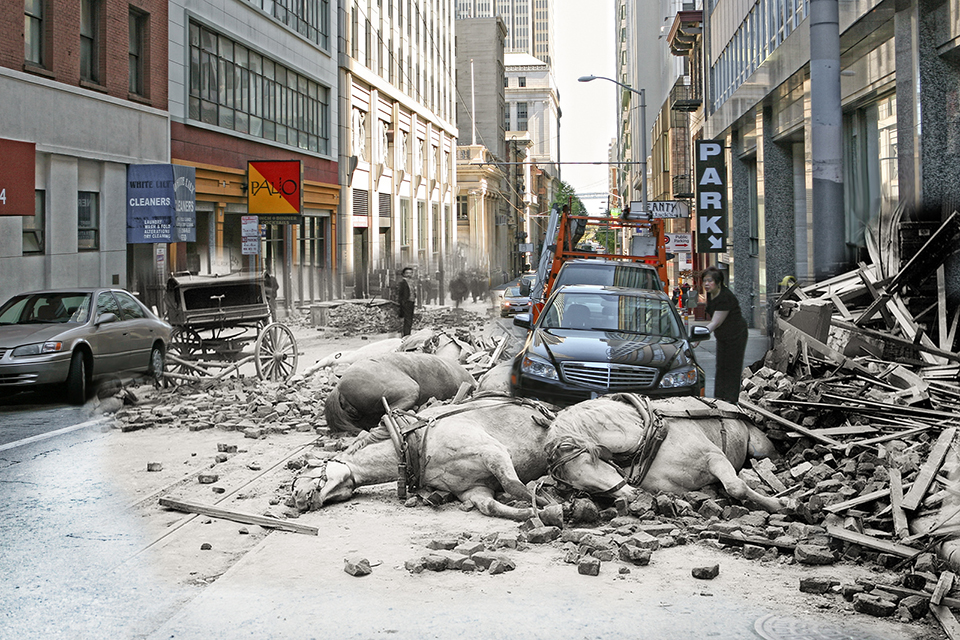
Click on photo for larger view.
First, I needed to find a suitable photograph to use, preferably one from the Crowsnest Pass. While searching through some of the Glenbow Museum’s photos on their website, I found an image of the Hillcrest-Mohawk Mine tipple taken in 1945 by renowned Crowsnest Pass photographer, Thomas Gushul. The photo, seen at the top of this post, was of a group of men standing alongside coal-sorting equipment inside the tipple. The tipple ruins and equipment inside remain standing to this day, along Highway Three, near Bellevue.
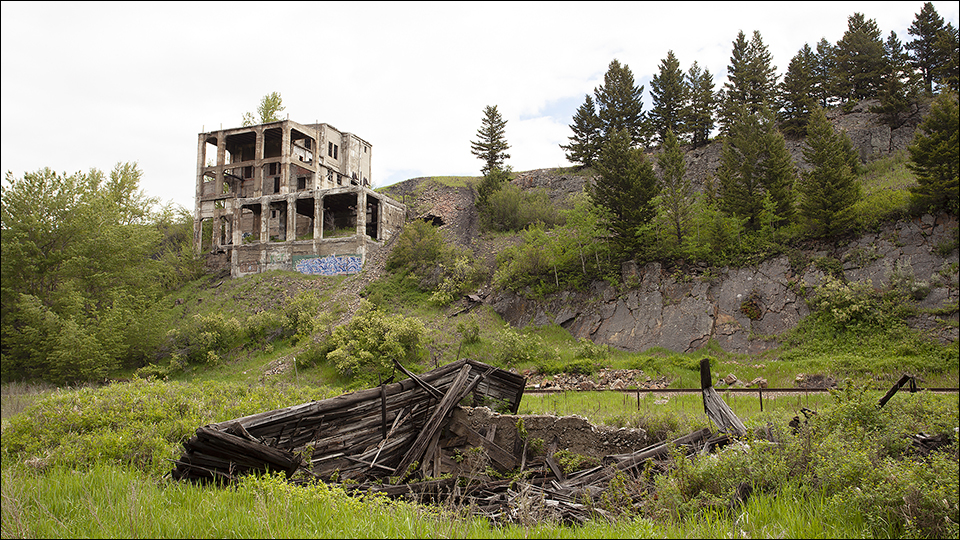
When I checked inside the tipple, I noticed the metal checker plate landing and stairway, where Thomas Gushul once stood with his camera and tripod, were lying in the basement of the building, two stories below. Without the landing, a repeat photo would not be possible. Not wanting to give up, I came up with the idea to erect a temporary wood platform to stand on.
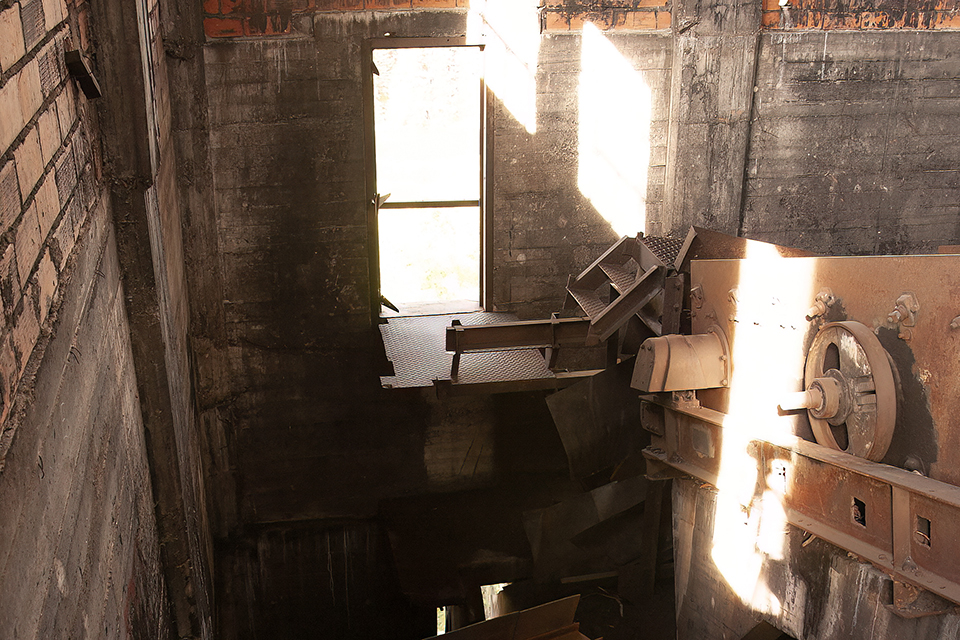
Taking the photo wasn’t as easy as I thought. For the images to match, not only do you have to stand in the exact spot where the original photographer stood, but the camera needs to be at the same height while using the equivalent focal length on your lens. I contacted Shawn Clover and he graciously provided some tips to help me line up my photograph with the original. In the end, I was able to take a photo inside the tipple that closely matched the Gushul photo. When I blended the images, I included much of the present-day interior of the structure and equipment while revealing the men in the original photo.
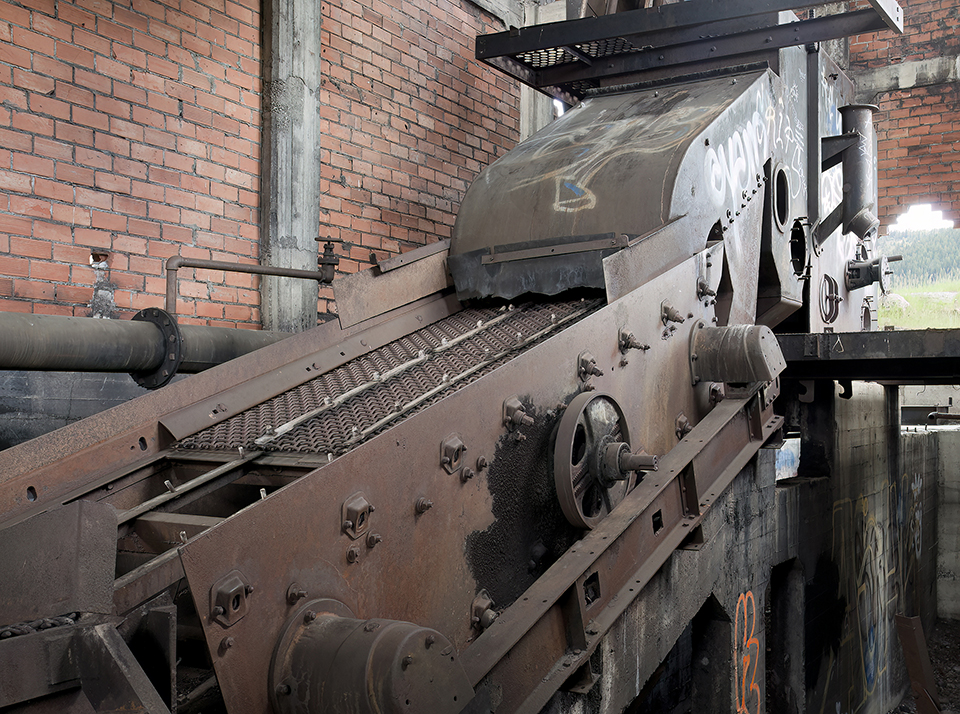
While constructing the wooden platform, I set up a camera to take a photo every few seconds, with plans to create a time-lapse video. More than 600 images were taken in the hour it took to build the platform. The images were stored on my computer until earlier this year when I finally completed the video. To watch the video, click here or on the link below.
New Book
My 2015 repeat photograph of the Hillcrest-Mohawk Mine tipple led me to another project that is nearing completion. In the next few weeks, I will provide some exciting news on a book project I have been working on for the Crowsnest Museum and Archives.


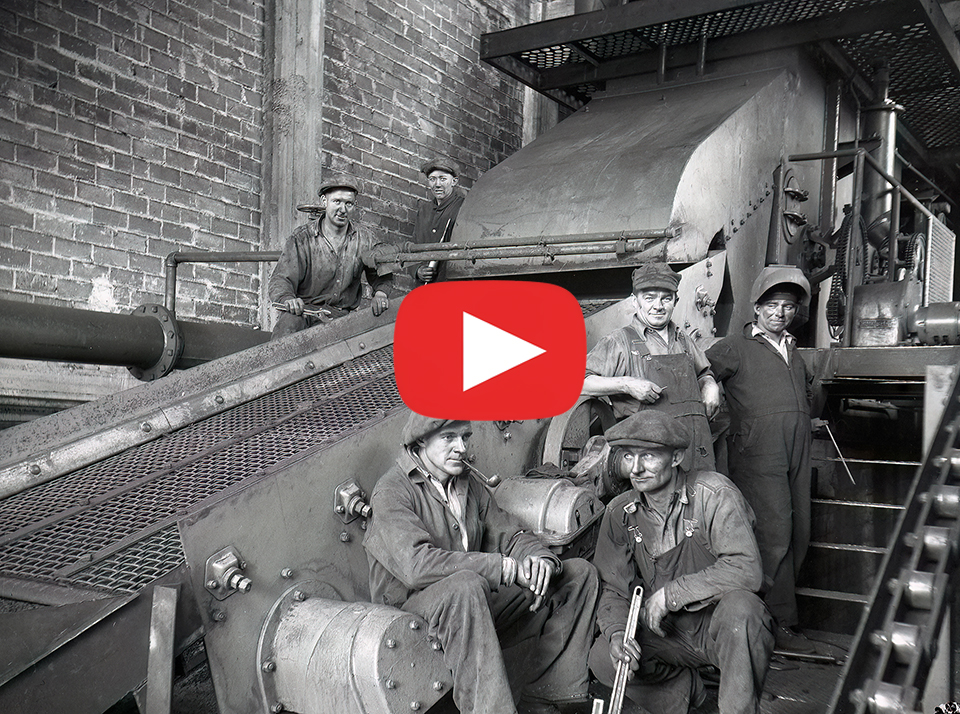
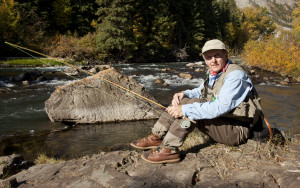
12 Comments
Well done Vic, a man of many talents. Looking forward to seeing more of your creativity.
Hi Dave,
Thanks, I appreciate your comments! It was fun doing this!
That is awesome Vic! I love the before and after photos and what you’ve done here. What a fun hobby to do. I also think it would be great to see some before, after and now photos of the Lost Creek fire.
Hi Lori,
Thanks, it was a fun project! Before and after photos of the Lost Creek fire would be interesting to look at, too. Maybe someone is working on this. Thanks for commenting!
Just so fascinating Vic. Very creative and well done. Congratulations and thanks for sharing.
All the best.
Gerry
Hi Gerry,
I think this type of photography is very fascinating. I may try more of this in the future. Thanks for commenting!
Vic: Very impressive what you’ve done here… great commitment to a project! Love the film/ video and the final photo. All of it, so professional looking…
Bob
Hi Bob,
Thanks for the compliment! I really enjoyed working on this photo and I learned a lot. Thanks for looking!
Great to see you are enjoying what you love to do. So cool.. i cant wait for the book coming.
Hi Mike,
It was a lot of fun working on this! Can’t believe it was nine years ago. Thanks for commenting!
Great photograph Vic! I love photography, especially black and white and its amazing to see what Shawn Clover and you both did. I can only imagine the process taken to arrive at the identical camera position so that you could achieve what you did! And I look forward to hearing/ seeing your new book project!
Hi Allan,
Thanks! I learned a lot about repeat photography while I was doing this. It was a lot of fun, too!